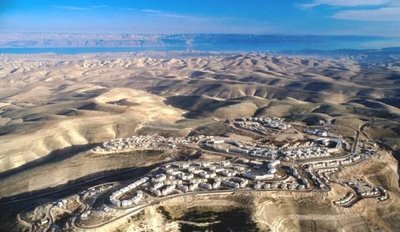UPDATES
The real obstacles to the peace process? Look further than settlements
June 22, 2011 | Daniel Meyerowitz-Katz

Former US Deputy National Security Adviser Elliott Abrams has written a piece in this month’s Foreign Affairs magazine that brilliantly outlines the history and current political issue of the settlements in the West Bank and the relevant policies of the US, Israel and the Palestinians. In the piece, Abrams reviews two books – Occupation of the Territories: Israeli Soldiers’ Testimonies 2000-2010 by Israeli NGO Breaking the Silence and The Settlers: And the Struggle Over the Meaning of Zionism by Gadi Taub.
Abrams first puts the settlements in the context of the recent debate, outlining the recent history of US policy on Israel/Palestine, observing that the single-minded focus on settlements has effectively derailed the peace talks.
On taking office in 2009, U.S. President Barack Obama put Israeli settlements at the center of U.S. policy in the Middle East. In Washington’s view, a complete construction freeze in the West Bank and East Jerusalem became not only desirable but also a prerequisite to Israeli-Palestinian peace negotiations. Previous U.S. administrations of both parties had never taken such a stance…This only changed in November 2010, when the White House abandoned the entire approach and began to search for a new one.
This single-minded focus on a construction freeze was clearly a mistake in the sense that it failed: the Israeli government did not agree to a freeze in East Jerusalem. Nor could any earlier Israeli governments have accepted such a demand, even if they, like Israeli Prime Minister Benjamin Netanyahu, had been open to partial or time-limited freezes in the West Bank…What is more, the Obama administration’s demand had the effect of cornering Palestinian President Mahmoud Abbas, who could not ask for less than Washington; if the U.S. president thought a total freeze was a prerequisite to negotiations, Abbas would have to think so, too. As a weary Abbas told Newsweek in April, the Obama administration led him up a tree and then “removed the ladder.”
Abrams then goes on to talk about the Breaking the Silence book, noting that it contains some disturbing stories of the actions of individual Israeli soldiers in the West Bank, but that it fails to prove that these were indicative of any institutionalised cruelty. Furthermore, he writes that it seems to have a clear political agenda and includes some facts which are outdated at best and deliberately misleading at worst. As he observes, the book consists of testimonies from soldiers, most of which were taken at the height of the conflict in the first half of the last decade and are therefore no longer representative of the situation in the West Bank. He also notes that the book entirely overlooks the numerous areas in which progress has been made since, such as the Gaza withdrawal in 2005 and the dramatic improvements in living conditions that have resulted from a better security situation.
Regarding the other work, Abrams notes that Taub correctly identifies that even the supposed “right wing hawks” in Israeli’s leadership had always opposed annexing the territories, despite some rhetoric to the contrary, and that there is more or less a consensus in Israel for a two state solution. As Taub explains, what is obstructing this is not a lack of will, but an impossible security situation and an uncooperative Palestinian leadership.
Abrams concludes by explaining that backing the settlers into a corner with constant criticism will make their withdrawal more difficult, not easier. He also outlines why the current Hamas-Fatah unity deal is preventing any progress on peace in the near future and reiterates that there are far bigger obstacles to a two-state solution than settlements.
I would encourage all of our readers to read Abrams’ entire article (see the link at the beginning) in order to properly understand his reasoning and conclusions.
Tags: Anti-Zionism





